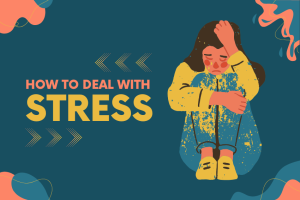If you’re pregnant women over 40, your brain might be doing cartwheels. One second, you’re amazed, the next you’re freaking out over numbers, risks, and what feels like everyone’s opinion. You scroll articles with scary headlines, side-eye every cramp, and wonder if your age makes you a ticking time bomb. But let’s just stop for a minute. You are not broken. You are not behind. And no, you are not alone.

Pregnancy after 40 is more common than you think, and guess what? Plenty of women have done it—and are doing it—with happy, healthy babies and their sanity intact. You’re allowed to be excited and nervous at the same time. That mix of feelings is normal. So let’s talk honestly about what this all really means, what to expect, and how to calm the anxiety that shows up louder than your cravings.
What High-Risk Actually Means
Hearing the term “high-risk pregnancy” can feel like someone slapped a warning label on your uterus. Doctors use it for anyone pregnant over 35, but it doesn’t mean something will go wrong. It just means you’ll be watched a little closer, which isn’t necessarily bad. It means extra ultrasounds. Extra check-ins. More support. You’re not fragile—you’re just being taken care of with more detail.
The truth is, some risks do go up with age. Things like gestational diabetes or high blood pressure become more likely. But so does having the experience to speak up for yourself, make informed decisions, and know your body. You’ve lived enough life to know that nothing is guaranteed—so when you’re offered more monitoring, think of it as more reassurance, not more stress. That “high-risk” label? It’s about caution, not doom.
Genetic Testing Isn’t as Scary (Or Expensive)
One of the first things that might come up in conversation with your doctor is genetic screening. You’ll probably hear about it early, especially since the chance of chromosomal issues like Down syndrome can increase with age. That part is real. But so is the fact that today’s testing options are simple, safe, and wildly helpful.
The non-invasive prenatal test (NIPT) checks for common genetic conditions using just a blood sample. It doesn’t harm the baby, and it’s usually done around week 10. It gives you information early, which can be a huge relief—especially if you’re the type who lies awake at night asking Google scary questions.
And here’s the thing: the NIPT testing cost is lower than you might think. Some insurance covers it. Some labs offer payment plans. Don’t skip it because of the price until you’ve asked about options. It might be more doable than you expect, and the peace of mind it can offer? That’s often-worth way more than the bill.
Why Picking the Right Support Really Matters
The people around you matter. A lot. Especially when you’re pregnant at an age when people feel weirdly free to say unhelpful things. You might hear “aren’t you too old for this?” or “was it planned?” from strangers and family alike. That’s why you need a care team and personal circle that actually gets you.
Start with your doctor. You want someone who treats you like a person, not a number. Someone who sees your age but doesn’t make it your entire identity. Some women choose midwives or nurse practitioners. Others go with OB-GYNs who specialize in older pregnancies. What’s becoming more popular is shared pregnancy care—where you work with both a midwife and a doctor, getting the best of both approaches.
Also, think about emotional support. Therapists who understand pregnancy anxiety. Friends who know when to listen instead of give advice. Partners who actually show up for the hard stuff. You don’t have to do this solo. You just have to get picky about who’s on your bench.
It’s Okay to Feel Torn Between Fear and Joy
Even if you’re thrilled to be pregnant, fear can sneak in through the cracks. You might worry about the birth. About miscarriage. About being an “older mom” in a stroller group full of 20-somethings. Your brain might jump to the future—will you be too tired to chase a toddler? Too old at their graduation?
But pause for a second. What if your age is part of your strength? You’ve lived through breakups, breakdowns, career chaos, family drama. You’ve probably felt lost more than once and still showed up the next morning. That’s called grit. And it counts for a lot more than bounce-back skin or TikTok parenting hacks.
No one gets through pregnancy without at least a few meltdowns. You’re not weak for crying in the car or freaking out over every weird symptom. That’s not your age talking—that’s being pregnant. Let yourself be happy without guilt. Let yourself be scared without shame. You’re doing something brave. Don’t downplay that.
You Don’t Have to “Prove” You’re a Perfect Mom
Here’s the quiet pressure nobody talks about: when you’re pregnant women over 40, you might feel like you have to do everything “better” to make up for your age. Eat cleaner. Walk more. Avoid every ingredient you can’t pronounce. You might even over-research things like natural birth vs. C-section, trying to control every part of the story.
But you don’t have to earn your right to be here. You don’t have to parent without mistakes just because your journey started later. That kind of pressure isn’t healthy. It’s exhausting. The truth is, younger moms mess up too. And so do moms your age. All that really matters is that you show up—day after day—with love, patience, and snacks.
Try to tune out the perfection trap. You’re not being graded. You’re growing a life, and that’s hard enough without trying to win imaginary points. Take naps. Ask for help. Laugh at weird cravings. Let yourself be human. That’s the real win.
You’ve Got This – Even on the Days You Think You Don’t
Being pregnant over 40 doesn’t mean you missed your chance. It just means your story took a little longer to get going. And that’s okay. Beautiful, even. You’re not behind. You’re not broken. You’re just on a different kind of timeline—and you’re still right on time.
You can carry joy and fear at the same time. You can question yourself and still trust your instincts. You can cry one day and celebrate the next. That’s all part of it. You’re doing something extraordinary, and you don’t have to pretend it’s easy.
The fear? It’ll pass. Love? That’s already growing. Keep going.


